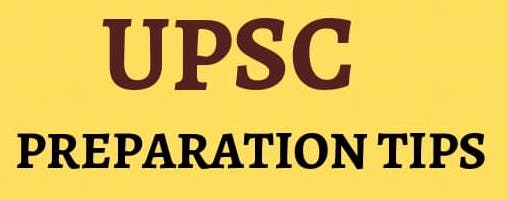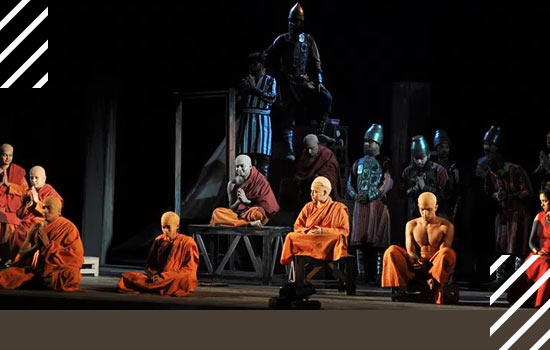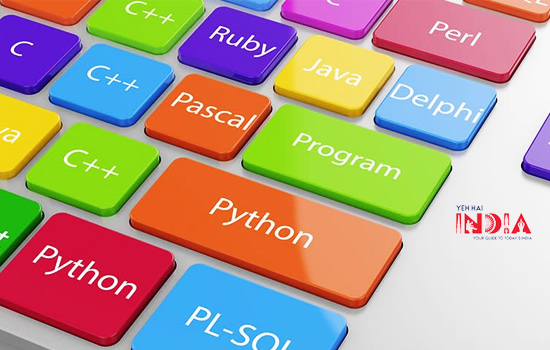UPSC Civil Services Examination is one of the toughest examinations in India. The preparation is a journey in itself where every year over 10 lacs aspirants apply. But only about 4.5-5 lacs actually appear for the exam. Do you know the reason why?
The reason is by and large fear that a very small percentage of aspirants finally clear all the three rounds. The three step process of Prelims, Mains and Interview is a hard one to crack.
So, how should one plan the preparation strategy so that you don’t lose out on the important years “learning” from mistakes, instead, push the accelerator in the first attempt itself?
Here, we have come up with a detailed plan on strategy for UPSC Civil Services Examination 2021. And if you are one of those planning to prepare for next year, you are at the right place! You have 1 year and 2 months on your side before next year’s prelims. This will give you immense time to complete the basics, revise, and revise with an integrated plan in hand.
Books to start with – The Foundational NCERT
They say NCERT is for the novice untill they see questions like ‘Ibadat Khana’ in the real prelims exam (2014 Prelims) or about Krishnadeva Raya (Vijayanagar’s king) and his writings which are explicitly written in the NCERTs (2018 Mains). These questions might give you a glimpse of how NCERT forms the foundation and a source of questions framed by UPSC? Following are the NCERT books that will be helpful –
For History – Old NCERT + Tamil Nadu Board
- Ancient India – RS Sharma (NCERT | Class 11)
- Medieval India – Satish Chandra (NCERT | Class 11)
- Modern India – Bipan Chandra (NCERT | Class 11)
- Environment and Biodiversity NIOS material (Zip File – Use desktop/ laptop)
- Tamil Nadu History (11th)
- Tamil Nadu History (12th)
For History – New NCERT
- Class 6-10th NCERT for History
- Text book (History) Theme- I (NCERT +2)
- Text book (History) Theme- II (NCERT +2)
- Text book (History) Theme- III (NCERT +2)
For Art and Culture
- An Introduction to Indian Art (NCERT | Class 11)
- Living Crafts Traditions of India (NCERT | Class 11)
- Crafts Tradition of India (NCERT | Class 12
For Indian Polity
- Indian constitution at work (NCERT | Class 11)
- Politics in India since independence (NCERT | Class 12)
For Economics
- Understanding Economic Development (NCERT | Class 10)
- Indian Economic development (NCERT | Class 11)
- Introductory Macroeconomics (NCERT | Class 12)
- Introductory Microeconomics (NCERT | Class 12)
For Geography
- Fundamentals of Physical Geography (NCERT | Class 11)
- India – Physical Environment (NCERT | Class 11)
- Fundamental of Human Geography (NCERT | Class 12)
- India –People and economy (NCERT | Class 12)
For Science
- Class 6-10th NCERT
- Class 11-12th NCERT (Chemistry and Biology – Selective Study)
- Most of all, this is a Current Affairs Section and hence reading magazines like Yojana and daily current affairs section of any website would do.
For Society
- Introducing sociology (NCERT | Class 11)
- Understanding Society (NCERT | Class 11)
- Indian Society (NCERT | Class 12)
- Social Changes in India (NCERT | Class 12)
For Environment
- ICSE Class IX
Reference books and Videos – Basic books and Lectures to cover for Foundation+ Knowledge (Must Read)
- For History – Rajiv Ahir Spectrum Publications + Bipin Chandra + Plassey to Partition
- For Geography – Mrunal Videos + Goh Cheng Leong
- For Environment – Shankar IAS
- For Polity – Polity by Lakshmikant (New Version)
- For Post Independence – India Since Independence (Bipin Chandra
- For Art and Culture – Indian Art & Culture by Nitin Singhaniya
- For Economics – Mrunal Videos (Free videos from Youtube)
So, after having read the basic NCERTs mentioned above, you can start with these foundational books which will give clarity on each and every concept in detail.
Tips to read the books mentioned
- You must read the books initially as if you are reading a story
- Try to make sure you have a timetable where each subject is properly demarcated and given time.
- Please don’t start making notes from the first time you start with the books.
- Only after the second reading should you underline.
- It is better to not make notes for each NCERT. Rather, just underline/highlight the important details in the third reading and then revise them when you are giving a Test Series.
- Make sure you don’t skip the NCERTs.
- If you feel you didn’t understand a concept in the NCERT (For example, understanding Monsoon in India can be tricky), you can search for the concept online on Youtube.
- Please make sure you don’t start studying the NCERT through those Youtube videos.Come back and start reading the NCERTs.
- Start with Economics and Polity.
Why should you start with Economics and Polity?
This is because you have to start getting in the habit of reading newspapers. But initially, you wouldn’t understand a thing in the newspaper. Why is that?
- This is because newspapers may contain trivial details on Economics and Polity.
- What will haunt you more is concepts like IPR, Repo Rate, Bank Rate, Inflation would feel alien to you initially.
- To stop this alien feeling, it is important that you get hold of the basic concepts in Economics and Polity.
- Why Polity? It is because a number of current affairs would comprise topics like Governor’s Rule, Ordinances, Religious Minorities and rights, Fundamental Rights, Environment Rules and Regulations, etc.
- So, it is important that you understand what the importance of legislature, executive, and judiciary is.
- Try to connect each topic that you read in the newspaper with the topics from the basic books.
- This would make sure your mind opens and you get hold of the various things which are coming in the newspaper.
- The moment you see the news, you should be able to connect with the Basic Subjects.
- For example – Article 370 abolished? What is the history of it? How was it a special provision? Do other states have similar provisions?
- These questions can be answered once you have a hold on the subjects.
Preparing for Prelims 2021 – A study plan
If you have been an average student who lacks the basic understanding of the subjects taught in school, it will take a bit of time to get a grasp of topics mentioned in the NCERT. But this doesn’t mean you cannot compete with the others. Infact, you should start with your studies right now!
But then, is it the right way to start? Let us give you an overlook of how the study plan needs to be actualized in a practical manner –
- First of all, you need to complete two readings of all the mentioned books in 4-5 months.
- If you think this is almost impossible, try to complete this in 6 months.
- Trust us, if you are dedicated and plan to clear this in one attempt, you’d be able to do a two time reading in 4-5 months.
- After that, take up a test series for Prelims.
- Most preferably, buying the Insights Test Series for both Book Based and Subject Based tests would give you the comprehensive coverage of all you need to study.
- Follow the plan religiously!
- Don’t fear if you get low marks in the test series initially.
- Even if you feel demotivated, the one thing you shouldn’t do is to stop following the plan.
- Remember that faith is everything, and it works for UPSC exams too.
- So, keep faith in the test series and follow the plan religiously.
Why do we fear low marks in the Test series?
It is a common human trait to feel demotivated when you secure low marks in the initial test papers that you solve. But the exam that you are going to attempt requires something more than just being smart, intelligent and with caliber.
This one thing is patience.
The ones who have achieved success in the exams (at least most of them) have reached some state of Nirvana after toiling hard.
Does it mean they didn’t get low marks in their tests?
We have people who used to score as low as 6 marks in the 2014 Test Series, who went on to clear the exam and are in the services.
Did you score lower than 6 marks in the GS Paper 1?
You obviously haven’t.
We lose the moment we start to fear. But the ones who feel that the process is bigger than the marks they receive in the test series, have already reached the status of the people who will evidently and eventually clear the exam.
Which one do you wish to become?
In the next article, we’d write in detail about How to Prepare for Mains 2021 in detail. The books would be no different (except for the few due to the vast syllabus), and the plan would be integrated when you study for the Prelims through a test series.
So stay tuned for further updates.
Also Read- How to prepare for UPSC Prelims and Mains










If you delay your child’s reading skill development until he or she enters school, you are putting your child at risk…
Did you know that 67% of all Grade 4 students cannot read at a proficient level!